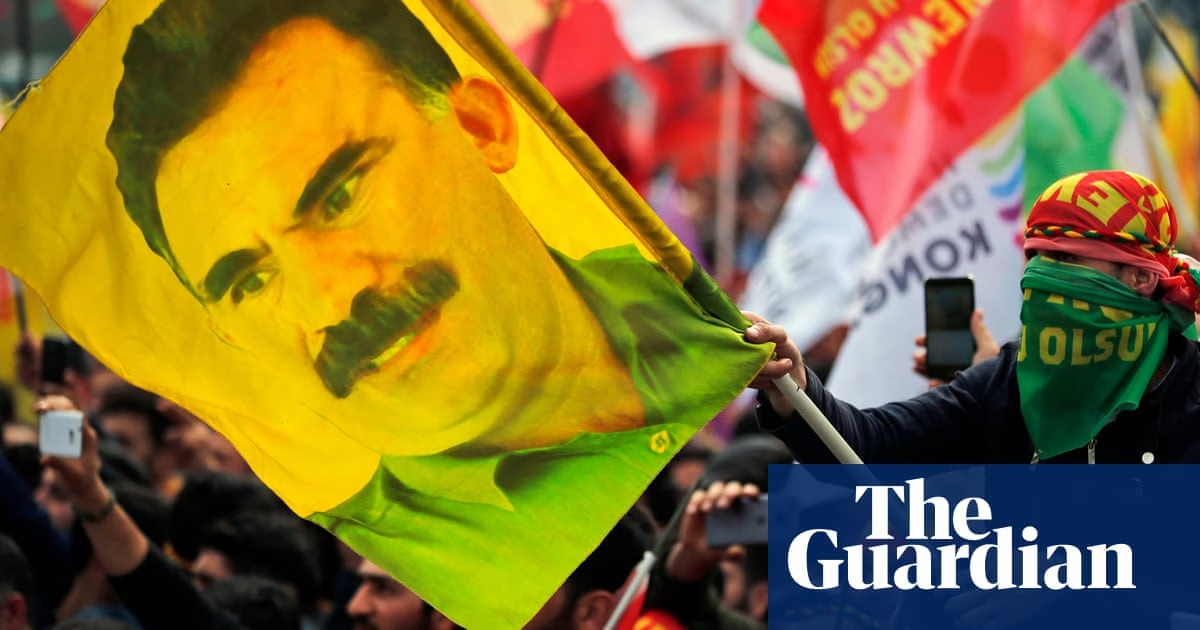The imprisoned leader of the Kurdistan Workers’ party (PKK) has issued a call for all groups to disarm and the PKK to dissolve, marking a significant step towards ending the 40-year conflict between militant Kurdish groups and the Turkish state, with implications reaching across the Middle East. Abdullah Öcalan, in a letter read by political allies in Istanbul, took on the historical responsibility for this call, urging that all groups must lay down their arms. This development follows a surprising peace overture from Devlet Bahçeli, a hardline nationalist aligned with Turkish President Recep Tayyip Erdoğan, last October.
Turkey, Iran, Iraq, and Syria saw failed efforts to establish an independent Kurdish state post-World War I, rendering Kurds minorities. Denied their ethnic identity, the PKK, a left-wing guerrilla movement, was formed in 1978 demanding an independent Kurdistan in southeastern Turkey. Over 40,000 lives have been lost and hundreds of thousands displaced due to conflict that has affected the region. The PKK shifted its stance in the 1990s from seeking independence to advocating for autonomy within Turkey’s borders, yet it remains designated as a terrorist organization by Turkey, the EU, UK, and US.
Öcalan, 76, a founding PKK member from southern Turkey, fled to Syria before being arrested in Kenya in 1999 and sentenced to life on İmralı island. He has championed a political resolution to the conflict since 1993 and continued writing and remote involvement in peace talks. The timing of Öcalan’s announcement follows recent visits from pro-Kurdish party members and the ongoing Turkish government’s attempts to reopen the peace process with the PKK, potentially influenced by voter support and geopolitical tensions including the war in Gaza, Syria’s political situation, and relations between Israel and Iran.
While the previous 2013 peace agreement between Öcalan’s government and the PKK initially brought optimism, hostilities resumed two years later. The response from the PKK’s military wing, based in northern Iraq, and the impact on the region, including Syria where a PKK offshoot is part of the US-backed SDF controlling the country’s northeast, remain uncertain. A disarmed PKK could facilitate agreements with the autonomous Kurdish administration and Turkey-backed powers in Syria.
Source: https://www.theguardian.com/world/2025/feb/27/why-has-pkk-leader-called-on-group-to-dissolve-and-why-does-it-matter-turkey-abdullah-ocalan







